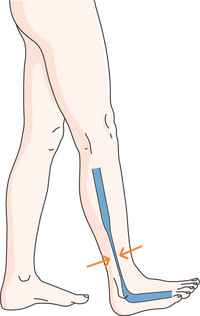MedicalResearch.com Interview with:
Rick Woychik, Ph.D.
Director of the National Toxicology Program
Director of the National Institute of Environmental Health Sciences
Principal Investigator
Mammalian Genome Research Group
Division for Intramural Research at NIEHS
MedicalResearch.com: What is the background for this study?
Response: Since 1945, the use of fluoride has been a successful public health initiative for reducing dental cavities and improving general oral health of adults and children. There is a concern, however, that some pregnant women and children may be getting more fluoride than they need because they now get fluoride from many sources including treated public water, water-added foods and beverages, teas, toothpaste, floss, and mouthwash, and the combined total intake of fluoride may exceed safe amounts.
Therefore, the National Toxicology Program (NTP) conducted a systematic review of the published scientific literature on the association between fluoride exposure and neurodevelopment and cognition. The NTP released their findings in a
State of the Science Monograph on August 21, 2024, and posted to the NTP website. A corresponding meta-analysis on children’s IQ has been accepted by a scientific journal for publication later in 2024.
The NTP started this work in 2016. As with all research documents intended for publication, the NTP fluoride monograph and meta-analysis underwent rigorous scientific evaluation. The evaluation process has involved many steps. The draft fluoride monograph received significant critical feedback during peer-review by the National Academies of Science, Engineering and Medicine (NASEM), from other external experts, and from experts in several federal health agencies. After modifications were made, additional evaluation following a rigorous scientific framework was conducted by subject matter experts organized by the NTP Board of Scientific Counselors. I am very pleased that this document is now complete and available for reference.
Since fluoride is such an important topic to the public and to public health officials, it was imperative that we made every effort to get the science right. I commend the report authors, the NTP Board of Scientific Counselors, and countless subject matter experts who participated in this evaluation. The monograph represents a thorough review of the data, and the various interpretations of the data, to accurately reflect what we know and where additional research is needed.
(more…)


























 At its core, Proposal Automation streamlines the creation of complex sales proposals, allowing businesses to generate accurate, personalized proposals swiftly. This is particularly beneficial in today's fast-paced market where quick turnaround times can be a competitive edge. Meanwhile, CRM systems are designed to manage customer interactions and data throughout the customer lifecycle. They help companies understand their customers, manage relationships, and analyze data for better decision-making.
At its core, Proposal Automation streamlines the creation of complex sales proposals, allowing businesses to generate accurate, personalized proposals swiftly. This is particularly beneficial in today's fast-paced market where quick turnaround times can be a competitive edge. Meanwhile, CRM systems are designed to manage customer interactions and data throughout the customer lifecycle. They help companies understand their customers, manage relationships, and analyze data for better decision-making.




 Elena Stains
Medical Student
Department of Medical Education
Geisinger Commonwealth School of Medicine
Scranton, PA
MedicalResearch.com: What is the background for this study?
Response: Opioid use has been an increasing problem since the early 2000s in the United States (US) with a surge around 2010. Twenty-five percent of those having abused pain relievers in 2013 and 2014 got those drugs from physicians1. Physicians are particularly well-known for fueling the opioid crisis in Florida in the 2000s. Of the United States’ top 100 opioid prescribing physicians in 2010, an astounding 98 were prescribing in Florida2. Florida taking the main stage of the opioid crisis can be attributed to several factors, including ability of physicians to dispense opioids directly from their offices to patients (i.e. without pharmacists) and the presence of many infamous “pill mills” in the state3–6.
The researchers at Geisinger Commonwealth School of Medicine aimed to analyze the amount of hydrocodone (including brand names of Vicodin and Lortab) and oxycodone (OxyContin and Percocet) distributed in Florida from 2006 to 2021, paying close attention to the peak year of the opioid crisis, 2010. The team used the Washington Post and the US Drug Enforcement Administration’s Automation of Reports and Consolidated Orders System (ARCOS) databases to compile this compelling information.
Elena Stains
Medical Student
Department of Medical Education
Geisinger Commonwealth School of Medicine
Scranton, PA
MedicalResearch.com: What is the background for this study?
Response: Opioid use has been an increasing problem since the early 2000s in the United States (US) with a surge around 2010. Twenty-five percent of those having abused pain relievers in 2013 and 2014 got those drugs from physicians1. Physicians are particularly well-known for fueling the opioid crisis in Florida in the 2000s. Of the United States’ top 100 opioid prescribing physicians in 2010, an astounding 98 were prescribing in Florida2. Florida taking the main stage of the opioid crisis can be attributed to several factors, including ability of physicians to dispense opioids directly from their offices to patients (i.e. without pharmacists) and the presence of many infamous “pill mills” in the state3–6.
The researchers at Geisinger Commonwealth School of Medicine aimed to analyze the amount of hydrocodone (including brand names of Vicodin and Lortab) and oxycodone (OxyContin and Percocet) distributed in Florida from 2006 to 2021, paying close attention to the peak year of the opioid crisis, 2010. The team used the Washington Post and the US Drug Enforcement Administration’s Automation of Reports and Consolidated Orders System (ARCOS) databases to compile this compelling information.